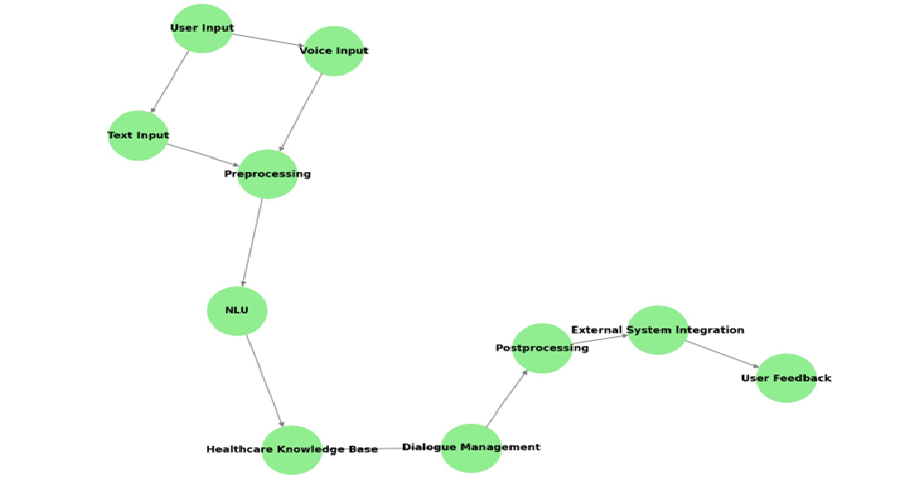Comprehensive Survey on Healthcare Virtual Assistants: Leveraging Natural Language Processing for Predictive Insights
Main Article Content
Abstract
The integration of Natural Language Processing (NLP) in healthcare has enabled the development of intelligent virtual assistants capable of transforming patient care and improving administrative efficiency. These healthcare virtual assistants (HVAs) utilize advanced NLP techniques to offer functionalities such as symptom analysis, medication reminders, appointment scheduling, and mental health support, thereby enhancing patient engagement and streamlining clinical workflows. By leveraging state-of-the-art models like transformer-based architectures (e.g., BERT and GPT), sentiment analysis, and intent recognition, HVAs can process and understand complex patient interactions with remarkable accuracy. Additionally, their predictive capabilities empower proactive healthcare interventions, including early disease detection and risk factor identification, through real-time analysis of patient data. Despite their promise, HVAs face challenges such as ensuring data privacy, addressing language diversity, and navigating ethical considerations. This survey provides a comprehensive exploration of current advancements, applications, and challenges associated with NLP-powered HVAs, emphasizing their transformative potential in revolutionizing healthcare delivery and identifying avenues for future research and development.
